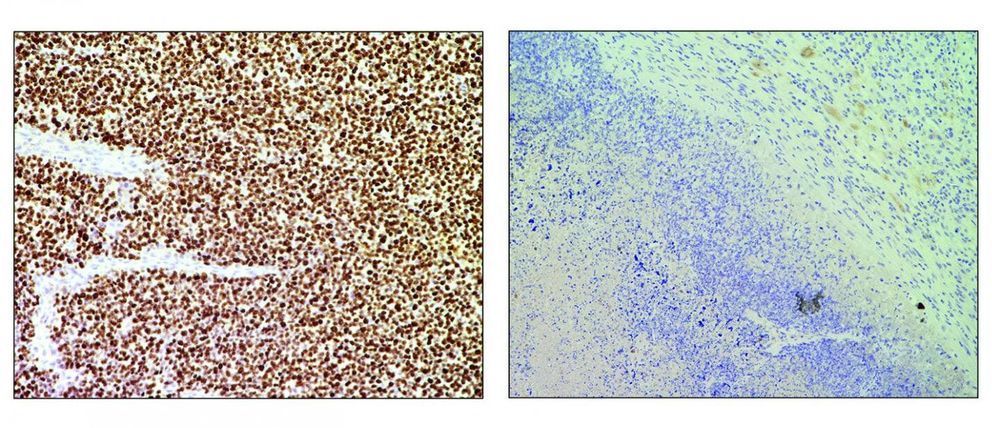The CRISPR/Cas9 gene-editing tool is one of the most promising approaches to advancing treatments of genetic diseases—including cancer—an area of research where progress is constantly being made. Now, the Molecular Cytogenetics Unit led by Sandra Rodríguez-Perales at the Spanish National Cancer Research Centre (CNIO) has taken a step forward by effectively applying this technology to eliminate so-called fusion genes, which in the future could open the door to the development of cancer therapies that specifically destroy tumors without affecting healthy cells. The paper is published in Nature Communications.
Fusion genes are the abnormal result of an incorrect joining of DNA fragments that come from two different genes, an event that occurs by accident during the process of cell division. If the cell cannot benefit from this error, it will die and the fusion genes will be eliminated. But when the error results in a reproductive or survival advantage, the carrier cell will multiply and the fusion genes and the proteins they encode thus become an event triggering tumor formation. “Many chromosomal rearrangements and the fusion genes they produce are at the origin of childhood sarcomas and leukaemias,” explains Sandra Rodríguez-Perales, lead co-author of the study now published by the CNIO. Fusion genes are also found in among others prostate, breast, lung and brain tumors: in total, in up to 20% of all cancers.
Because they are only present in tumor cells, fusion genes attract a great deal of interest among the scientific community because they are highly specific therapeutic targets, and attacking them only affects the tumor and has no effect on healthy cells.
